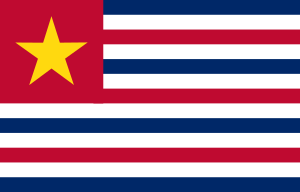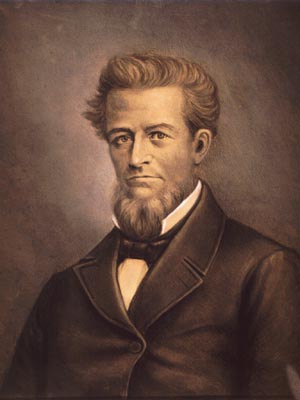Louisiana secession facts for kids
Louisiana declared it was leaving the United States on January 26, 1861. It then joined the Confederate States, also known as the C.S. Louisiana was the sixth state that allowed slavery to leave the U.S. and join the Confederacy. This decision led to a major conflict known as the American Civil War.
Contents
Louisiana Leaves the Union
On January 26, 1861, leaders in Louisiana held a special meeting. They voted to pass something called an "Ordinance of Secession." This was a formal document that said Louisiana was no longer part of the United States. It meant the state was taking back all its powers. It also said that people in Louisiana no longer had to be loyal to the U.S. government. Most people in Louisiana celebrated this decision. They had parades and fireworks in New Orleans.
Road to War
The American Civil War happened because of many years of arguments. The biggest issue was slavery. Louisiana's leaders wanted to protect slavery. They hoped agreements like the Missouri Compromise and the Compromise of 1850 would keep the peace. But people who wanted to end slavery, called abolitionists, grew stronger. This made slave owners in Louisiana feel threatened. They worried about their way of life and their economy. No one in Louisiana expected the war to last very long. They thought it would be over in just a few weeks.
The Election of 1860
The issue of slavery caused big problems in the Democratic Party. This led to four candidates running for president in 1860. Northern Democrats supported Stephen A. Douglas. But Southern Democrats felt he wasn't strong enough on slavery. Some extreme Southern Democrats, called "Fire-Eaters," left the convention. They chose their own candidate, John C. Breckinridge. Other Southerners wanted to keep the country together. They formed the Constitutional Union Party. They chose John C. Bell as a middle-ground candidate.
Because the Democrats were split, the Republican Party won the election. Abraham Lincoln became president. Many white Southerners saw Republicans as enemies. They believed Republicans would end their slave-based way of life. Lincoln's name wasn't even on the ballot in Louisiana. He didn't get a single vote there. His election caused an immediate strong reaction. Newspapers in New Orleans said the Republican Party was against Louisiana's interests. People started talking about leaving the Union very quickly.
Louisiana Secedes

On January 26, 1861, the Secession Convention voted. The vote was 113 to 17 to adopt the Ordinance of Secession. Judge James G. Taliaferro was one of the few who spoke against it. He warned that leaving the Union would bring war and ruin. But his warnings were not officially recorded. Most people in the state celebrated. The governor asked everyone to light up their homes and businesses. People cheered as fireworks and cannons went off.
Louisiana called itself an independent country for less than two weeks. On February 4, 1861, Louisiana joined the Confederate States of America. This was the new nation formed by the Southern states that left the U.S. Louisiana also sent important leaders to the Confederate government. Judah P. Benjamin became a key advisor to Confederate President Jefferson Davis. John Slidell worked to get European countries to support the Confederacy. Louisiana also gave four important generals to the Confederate army. These included Braxton Bragg, Leonidas Polk, Richard Taylor, and P. G. T. Beauregard.
Building an Army
The Confederacy needed soldiers. Louisiana quickly sent 5,000 volunteers. Across the state, groups of men formed companies. They chose colorful names like the Louisiana Swamp Rangers and the Crescent City Guards. They wore bright uniforms. They thought the war would be short and glorious. They believed they would "teach the Yankee a lesson" in just 60 days.
Soldiers trained at places like Camp Walker near New Orleans. But this camp was in a swamp and had bad drinking water. So, it was soon abandoned. Camp Moore, north of Lake Pontchartrain, became the main training site. It had hills, tall pines, and good water. But life in any training camp was hard. It was tough to get enough food and supplies. Diseases like measles spread quickly. Many soldiers died from sickness before they ever saw a battle.
As the war became more deadly, fewer men wanted to join. At first, soldiers expected to return home quickly. But the war lasted a long time, and families suffered. To get more soldiers, the Confederate government paid a reward called a bounty. Some local governments paid extra bounties. Eventually, the Confederacy didn't have enough volunteers. So, they started a draft. This meant all men of a certain age had to join the army. The draft law had a special rule. Men could pay someone else to take their place. Also, anyone who owned twenty or more enslaved people did not have to serve. This made many soldiers on both sides call the Civil War "a rich man's war and a poor man's fight."
Gathering Supplies
In 1861, Louisiana was ready for war in spirit. But that wasn't enough. They needed equipment and supplies. At first, local governments, rich people, or the soldiers themselves provided supplies. Louisiana didn't make many finished goods. But some factories changed what they made. A New Orleans factory started making uniforms instead of clothes for plantations. Other factories used scrap metal to make weapons.
Ranches in southwest Louisiana and Texas provided cattle for meat. The meat was preserved by salting it. This made it tough and very salty. Soldiers had to boil it for hours before eating. They learned to ignore bugs floating in the water. Salt for preserving meat came from deposits around the state. The discovery of large salt deposits at Avery Island was very important for the Confederacy.
The women of Louisiana also helped a lot. Ladies' sewing groups made uniforms and bags for bullets. Their sewing machines became like assembly lines. But soon, they stopped making battle flags. Instead, they started making bandages. Fancy linen pillowcases became sandbags at Port Hudson. Treasured carpets became blankets for cold soldiers.
First Governor of Independent Louisiana
Thomas Overton Moore became the Democratic governor of Louisiana in November 1859. He started his term on January 23, 1860. In his first speech, Governor Moore told lawmakers that a strong anti-slavery party in the Northern states was a threat. He said this party, the Republican Party, was against slavery. He believed slavery was a good thing for the Southern states. He also said that people in the North were sympathetic to criminals. This made him distrust the U.S. government. He felt it was time for the states to separate.
On January 8, 1861, Governor Moore ordered Louisiana's militia to take over U.S. army bases. These included the arsenal in Baton Rouge and forts guarding New Orleans. Moore was a wealthy planter and owned many enslaved people. He worked hard to make Louisiana leave the Union. After the secession vote on January 26, 1861, Moore put Colonel Braxton Bragg in charge of the state military.
Governor Moore was in office from 1860 to early 1864. When the war started, he tried to get the Confederate government to defend New Orleans strongly. But they didn't. Two days before New Orleans surrendered in April 1862, Moore and the state lawmakers left Baton Rouge. They moved the state capital to Opelousas.
Governor Moore then started organizing state military resistance. He ordered cotton to be burned so Union forces couldn't get it. He also stopped trade with Union forces. He strongly encouraged men to join the state militia. But Union forces kept moving into Louisiana and up the Mississippi River. So, the capital had to be moved again, this time to Shreveport.
New Orleans
New Orleans, Louisiana, was the largest city in the entire South. It was very important because it was a port city. It was located on the Mississippi River and had access to the Gulf of Mexico. The U.S. War Department planned to capture it early in the war. U.S. troops took New Orleans on April 25, 1862.
Many people in New Orleans supported the Union. Or they had business interests that matched the Union's goals. Because of this, the U.S. government did something unusual. It declared the parts of Louisiana under its control a state within the Union. This part of Louisiana even had its own elected representatives in the U.S. Congress. For the rest of the war, both the Union and the Confederacy had their own different governors for Louisiana.
Notable Civil War Leaders
-
Gen.
P. G. T. Beauregard -
Gen.
Braxton Bragg -
Lt. Gen.
Richard Taylor -
Brig. Gen.
Randall L. Gibson -
Brig. Gen.
Harry T. Hays
 | Delilah Pierce |
 | Gordon Parks |
 | Augusta Savage |
 | Charles Ethan Porter |









